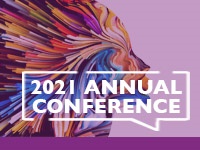Heroes or Villains: How Brands Can Navigate Today’s Climate of Heightened Moral Judgment
Total Credits: 1 Advance Credits
- Average Rating:
- 7
- Categories:
- Communication | Consulting
- Speaker:
- Julie Knox
- Duration:
- 42 Minutes
- Format:
- Audio and Video
- Original Program Date:
- Feb 02, 2021
Overview
The Chinese word for crisis is composed of two characters — 危机 — one signifying ‘danger’ and one signifying ‘opportunity.’ We have begun to see this duality play out in the way that brands are being judged, and their reputations and images changed, by how they have been behaving and communicating not just in response to the pandemic, but also in response to the recent wave of protests for racial justice. Insights from our newly launched WhatsApp Community of consumers and small business owners, show that people are displaying a heightened sensitivity to how ‘corporate America’ is behaving and which ‘side’ companies are on – with a new landscape of heroes and villains emerging. Understanding how people are assessing brands in this climate of heightened moral judgement could give companies a crucial advantage in terms of driving their responses and framing their messaging. We will use the ‘Moral Foundations Theory’ outlined by Jonathan Haidt as a framework for understanding how our moral intuitions are being activated in the current environment, and how companies can adapt to this new level of scrutiny – whether this takes the form of a short-term adaptation or a longer-term transformation.
Resources
| Presentation Slides (3.3 MB) | Available after Purchase | ||
Speaker

Julie Knox Related Seminars and Products
CEO
Jigsaw Research
| Julie Knox has over 20 years of research experience, spending most of her career agency side but with stints client side, both as an in-house researcher and as an external consultant. She has divided her time between the UK and US and in 2012, after 6 years with Jigsaw in the UK, she moved back to the US to start up Jigsaw’s operation there. Julie is a research hybrid, working with expertise across qual or quant approaches. She has taken a leading role in introducing Jigsaw’s WhatsApp approach to new markets, and has significant experience using this tool. |
